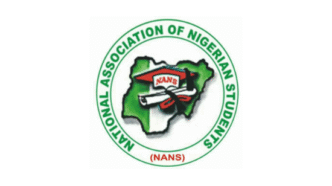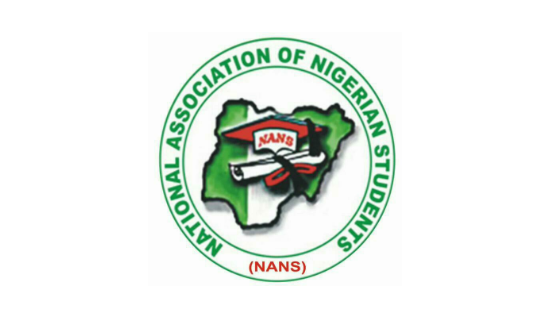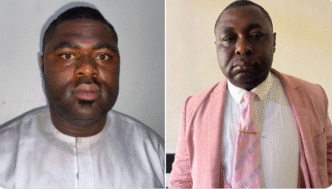The National Association of Nigerian Students (NANS) has issued a stern seven-day ultimatum to the Federal Government and the Academic Staff Union of Universities (ASUU), demanding that both parties resolve their lingering dispute to avert a potential strike that could once again paralyze academic activities across the nation’s universities.
The students’ body, in a statement signed by its National President, Olushola Oladoja, on Wednesday, warned that any disruption to the ongoing academic calendar would be met with stiff resistance from Nigerian students nationwide. The statement comes amid rising tension between ASUU and the Federal Government over unmet demands and unresolved issues related to lecturers’ welfare, funding, and university autonomy.
Background to the Dispute
The face-off between ASUU and the Federal Government has been a recurring issue in Nigeria’s education sector for over three decades. ASUU, the union representing university lecturers, has consistently demanded improved funding for tertiary education, better working conditions, and respect for university autonomy.
In 2022, the union embarked on an eight-month strike—the longest in Nigeria’s history—which kept millions of students out of school and disrupted the academic calendar nationwide. The industrial action was eventually called off following a court ruling and subsequent negotiations with the government.
Since then, the academic community has enjoyed relative stability. However, recent reports indicate that ASUU has threatened to resume another strike due to what it describes as the government’s “failure to honour key aspects of previous agreements,” including the payment of withheld salaries and revitalization funds for universities.
NANS Warns Against Another Disruption
In his statement, NANS President Oladoja described the brewing tension as “a dangerous signal” for the nation’s educational system, which has only recently begun to recover from years of instability.
“The National Association of Nigerian Students is deeply concerned about the growing disagreement between ASUU and the Federal Government,” Oladoja said. “We have enjoyed two uninterrupted academic years under President Bola Tinubu’s Renewed Hope Administration, and we will not allow this hard-earned stability to be jeopardized.”
He emphasized that Nigerian students have endured enough hardship from previous strikes and would not tolerate a return to the cycle of disruption. “We are giving both ASUU and the Federal Government a seven-day ultimatum to resolve all outstanding issues. After this period, Nigerian students will not hesitate to take to the streets to protect their right to education,” he added.
Achievements Under Tinubu’s Administration
NANS acknowledged what it described as a “notable improvement” in the education sector since President Bola Tinubu assumed office in May 2023. According to the student body, the last two academic sessions have been free from major disruptions—a feat not recorded since Nigeria’s return to democracy in 1999.
Oladoja praised the administration’s efforts to stabilize the sector through policy reforms, improved funding for tertiary institutions, and ongoing dialogue with key stakeholders. However, he warned that these gains could easily be eroded if the current standoff with ASUU is not swiftly resolved.
“The government has made commendable progress in maintaining stability in the education sector,” Oladoja noted. “But we must not allow this progress to be undone by another round of strikes. The students have suffered enough, and our patience is wearing thin.”
ASUU’s Position
ASUU has consistently maintained that its demands are aimed at improving the quality of university education in Nigeria. The union’s grievances include unpaid salary arrears, the non-release of earned academic allowances, inadequate funding of universities, and issues surrounding the implementation of the University Transparency and Accountability Solution (UTAS) as an alternative to the federal government’s Integrated Payroll and Personnel Information System (IPPIS).
ASUU President, Prof. Emmanuel Osodeke, recently stated that the union’s patience was running out, citing the government’s failure to fulfill agreements reached in previous negotiations. He warned that the union might be left with no option but to embark on another industrial action if concrete steps were not taken to address their concerns.
Potential Impact on Students
If ASUU proceeds with its threat to strike, millions of students across Nigeria’s public universities could once again face academic disruption. The effects of previous strikes remain fresh, with many students experiencing delayed graduations, psychological stress, and financial strain due to extended stays on campus.
NANS has expressed concern that another disruption would not only affect students’ academic progress but also undermine the credibility of Nigeria’s university system. “Every time our universities shut down, we lose global competitiveness,” Oladoja said. “Foreign universities are always ahead of us, and our students are forced to spend extra years in school for no fault of theirs.”
Call for Constructive Dialogue
NANS has urged both parties to return to the negotiation table and adopt a more transparent, results-oriented approach to resolving disputes. The students’ association also appealed to President Tinubu to personally intervene to ensure that the ongoing crisis does not escalate into another prolonged strike.
“We call on President Bola Ahmed Tinubu to demonstrate his commitment to education by intervening decisively in this matter,” Oladoja stated. “We also urge the Minister of Education and the Minister of Labour to prioritize dialogue and reach a sustainable agreement with ASUU.”
Public Reactions and Stakeholder Responses
The ultimatum issued by NANS has sparked mixed reactions across the country. Many parents and education stakeholders have commended the students’ proactive stance, urging the government and ASUU to put national interest first. Others, however, expressed concern that student protests could escalate tensions if not properly managed.
Education analysts have also weighed in, emphasizing the need for structural reforms to prevent recurring disputes between the government and university unions. They argue that sustainable funding models and greater autonomy for institutions could reduce the frequency of industrial actions in the sector.
The Way Forward
As the seven-day ultimatum from NANS counts down, all eyes are on the Federal Government and ASUU to see whether meaningful progress will be made. For many Nigerians, the recurring cycle of strikes has become a symbol of deeper systemic challenges in the country’s education system—ranging from underfunding to poor infrastructure and inadequate staff welfare.
Observers say that resolving this latest crisis will require genuine commitment from both sides. While ASUU demands that the government keep its promises, the government insists it is already working within budgetary constraints to meet obligations across multiple sectors.
Conclusion
The National Association of Nigerian Students’ ultimatum underscores the growing frustration among the country’s youth over the persistent instability in the education sector. With the clock ticking, stakeholders are hoping that dialogue—not confrontation—will prevail.
For millions of students across Nigeria, the message is clear: they have had enough of the endless cycle of strikes and want uninterrupted education under the Renewed Hope Administration.
If both ASUU and the Federal Government heed NANS’ call, the sector may finally begin to experience the lasting peace and progress that Nigerian students have long been denied.














